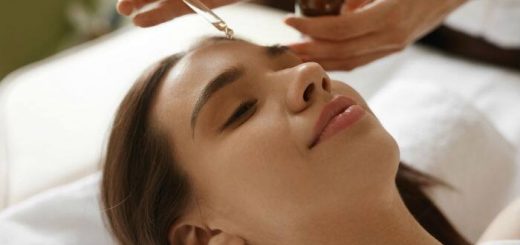Best Food to Eat for Healthy Skin Glow | Eat Your Way to Beauty
Bad skin gives bad impression.Nothing says youthfulness and good health like glowing, fresh skin. Some people are born with it, some can thank their family genes, but for the rest of us beautiful skin takes some work. What you may not realize is that it is easier than you think to have skin that glows.
Many of the ladies and most of the men these days are all crying out to get soft skin. But the big question is how we get the skin. you need fruits and vegetables for healthy skin. Absolutely! A healthy diet is essential for healthy skin… and fruits and vegetables are fundamental to a healthy eating plan.
First you should know that a diet for the overall health of the body is the best place to start, and in most cases that is enough for your skin, unless you have a deficiency of some type. But there are certain foods you must eat in order to keep your skin looking healthy, young and radiant.
Start by cutting junk food. People who eat junk food gain weight, have a pasty complexion and even bad hair. I know it is hard at first, but you can start little by little, always walking towards your goal. And please, don’t get into yo-yo diets. By gaining and losing weight constantly, your skin will stretch, and then remain saggy.
Fluids
Fluids are essential to our skin diet because they help moisturize the skin. Experts recommend that we should drink 6 to 8 glasses of water throughout the day, but don’t fall in the trap of drinking the 8 glasses in the morning, you should rationalize them and drink them in a natural way.
Don’t replace water for coffee or sodas. Caffeine is a diuretic (tends to increase the discharge of urine). Reduce your intake of coffee or tea to a maximum of 2 per day. Also don’t drinking too much water 2-3 hours before going to bed to avoid morning puffiness and skin stretch.
Alcohol is bad, avoid it at all costs if possible.
Essential Fatty Acids
Also called EFAs, they are obtained from food, because our bodies can’t produce them. There are two classes of EFAs: Omega 3 and Omega 6. For our skin Omega 3 is the one we need.
EFA’s should account for a 15% of our calorie intake, and can be found on:
- Sardines
- Tuna
- Salmon
- Nuts
- Seeds and their oils (ground flaxseeds)
- Prawns
- Soya beans
Reducing the intake of saturated and processed fats is very important if you want the EFAs to work. These fats cancel its effects.
Antioxidants
Antioxidant nutrients protect us from infection and can prevent us from degenerative diseases such as cancer or heart disease. These nutrients are found in Vitamins A, C, E and some B complex vitamins; and minerals selenium, manganese and zinc.
Antioxidants play a key role destroying free radicals (electrochemically unbalanced molecules that are produced within our bodies by chemicals, too much sun exposure and stress). Free radicals damage collagen, and collagen is what keeps our skin elastic.
We can find antioxidants in:
- Berries
- Black grapes
- Brazil nuts
- Broccoli
- Carrots
- Cherries
- Chestnuts
- Hazelnuts
- Kale
- Raisins
- Papaya
- Peas
- Peppers
- Prunes
- Spinch
- Sweet potatoes
- Tomatoes
Iron
Iron is used for the formation of hemoglobin. A deficiency in iron brings anemia, and this shows up in our bodies by a pale complexion and dark circles under the eyes. Iron is best processed from animal food but can be found also in some vegetables. The best sources of iron are
- Red meat
- Seafood
- Liver
- Eggs
- Spinach
Vitamin A
Vitamin A helps in the formation of new cell, this keeps our skin supple and is vital for our eyes and hair. If you are lacking of Vitamin A, your skin will be dry and flaky. It is manufactured by our bodies from beta-carotene and can be found in:
- Whole milk
- Whole butter
- Liver
- Oily fish
- Eggs
- Dark orange vegetables (carrots, sweet potatoes, winter squash)
- Dark green vegetables (broccoli, spinach, kale)
Vitamin C
Vitamin C is a powerful antioxidant, essential for the production of collagen (the elastic tissue in our skin that declines with age). Every time you are smoking, under stress or under too much sun exposure, your are draining vitamin C from your body, so it is best to avoid these situations in excess. Vitamin is found in:
- Citrus fruits (orange, lemon, grapefruit, lime)
- Tomatoes
- Potatoes
- Papaya
- Broccoli
- Brussels sprouts
- Black currants
- Kiwi
- Strawberries
- Peas
- Cauliflower
Vitamin E
Another antioxidant, Vitamin E has a powerful action against the damage of free radicals. This vitamin helps our skin retain its moisture, and a lack of it brings premature wrinkles, pale skin, acne, easy bruising and slow wound healing. Vitamin E can be found in:
- Vegetable oils
- Nuts and seeds
- Peanut butter
- Wheat germ
- Whole grains
- Avocados
- Sweet potatoes
Vitamin B complex
Keep your skin moist and smooth with Vitamin B complex. It releases energy from food for skin metabolism. This can be found in:
- Milk
- Oily fish
- Poultry
- Red meat
- Offal
- Eggs
- Bananas
- Soya beans
- Whole grain
- Wheat germ
- Peanut butter
- Fortified breakfast cereals
Beta-carotene
Beta carotene is the plant form of the vitamin A, converted by our bodies. It protects us from the aging effect of the sun and can be found in:
- Dark green vegetables (spinach, broccoli, watercress)
- Orange fruit and vegetables
Selenium
Perfect for protection against free radicals and to counter dry skin. Selenium along with vitamin E support the immune system. Found in:
- Cereals
- Meat
- Offal
- Seafood
- Eggs
- Cheese
- Brazil nuts
- Whole grains
- Mushrooms
- Beans
- Molasses
- Wheat germs
Zinc
Zinc is another mineral vital to the immune system. It manufactures collagen and speeds up healing in our bodies, included skin. A deficiency produces stretch marks, a dull complexion, white spots on fingernails, dandruff and stubborn blemishes. Zinc can be found on:
Seafood
Red meat
Cheese
Brewer’s yeast
Whole grains
Mushrooms
Offal
Eggs
Turkey and nuts
As you see there are many components in our diets that can help our skin. Instead of making yourself a diet just for skin care, make one that works for the health of your overall body, and then, if you find a deficiency you will know what foods you need to eat to keep your skin clear and good looking. It’s all about balancing your diet.


